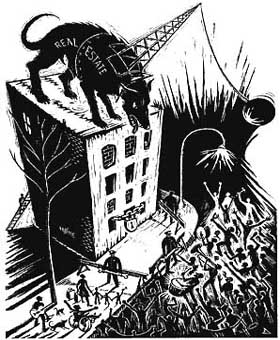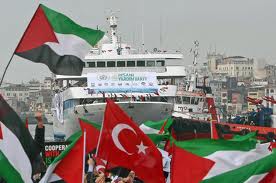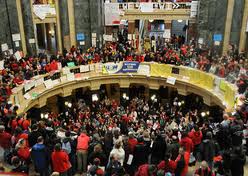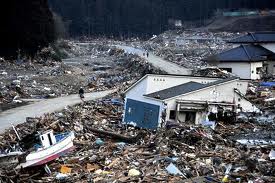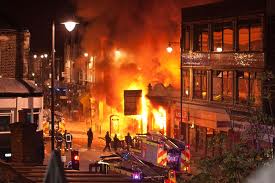MODULE 12: 2010-11
Chelsea Manning (2010)
To his credit, President Obama eventually pardoned Chelsea Manning. But she should have been given awards instead of prison time in the first place.
The US military committed a massacre of children and journalists from a helicopter gunship in Baghdad. The audio from that was recorded and was one of the many pieces of important and damning information that Chelsea Manning got out of the army base where she was employed as an analyst.
For her crimes of trying to bring atrocities to the light of day, Private Manning was tortured by her military captors in a variety of ways, along with being held in prison for years before her eventual release.
“Song for Chelsea Manning”
Corporations Are People (2010)
In a landmark Supreme Court ruling brought to the court by a rightwing group called Citizens United, the court decided that money was speech and corporations were people, and everybody should feel free to say or spend whatever they want with regards to political campaigns. The dam, already severely leaky, had just been dynamited.
And in response to a question at a campaign stop, Republican Presidential candidate Mitt Romney reaffirmed that “corporations are people, too.” So it must be true.
“Corporations Are People, Too”
2010 census data indicate that between the 2000 census and the 2010 census, the city of Portland, Oregon lost more than half of its African-American population. Due, primarily, to the uncontrolled and rapidly rising cost of housing (for both renters and “owners”). Thanks to gentrification, speculation, and basically just free market, unregulated capitalism – there goes the neighborhood.
“Gentrification Town”
Once again, people from around the world were organizing a flotilla of humanitarian aid boats to attempt to get to Gaza, to break the Israeli siege on this open-air prison – which by this time had no clean water, building materials or sufficient food for people to live any kind of decent lives there.
What made this particular effort more memorable than most was that it involved a very big ship with hundreds of people on it – and that nine people on this ship were killed in a massacre carried out by Israeli soldiers.
“Song for the Mavi Marmara”
Eleven dead in an industrial accident at an offshore oil well so deep it should never have been drilled, and then the corporation lost all control of the well as it gushed millions and millions of gallons of oil in one of the world’s worst environmental disasters, poisoning the sea and land in all directions in the Gulf of Mexico.
The US government’s response to this event was to continue to allow more corporations to get more permits to drill for oil far off-shore, in order to allow for such disasters to happen again soon. This is what the party does that is the one that wants to stay in the Paris Accords. The other one is ostensibly worse.
“Laissez les Bon Temps Rouler”
Tunisia (2011)
A vegetable seller immolated himself in December, 2010, and by January, 2011, the head of state was fleeing the country, which had been in a state of open rebellion then for weeks.
The revolution that was unfolding in Tunisia was the spark that lit a prairie fire that burned brightly throughout the Arabic-speaking world, and inspired people in many other parts of the world as well.
As with the European rebellions of 1848, with most of the challenged monarchs ultimately remaining in power, most of the rebellions did not result in the kind of revolution that Tunisia experienced.
Foreign powers like the US took advantage of the Arab revolts to try to further their own ends. The record of accomplishment is decidedly mixed, but what can be said for sure is nobody predicted it would start when or where it did, and no one knows the ultimate impact it all will have had until the dust settles.
“Tunisia, 2011”
Perhaps it was just one of those strange accidents of history that as the Arab rebellions were unfolding in Tunisia and Egypt and elsewhere, the new conservative governor of the traditionally progressive state of Wisconsin had chosen the same time to have an all-out battle with organized labor in his state.
In both Cairo and in Madison you had tens of thousands protesting on the streets at the same time. In Cairo they faced far more state violence – in Madison, to a large extent, the police were with the protesters. But in Cairo, at least for a time, the protesters won, and in Madison, the unions lost the battle.
“We Will Win”
An earthquake triggered a massive tsunami which washed away many Japanese towns, killed tens of thousands of people, did billions of dollars in damage, and, together with inherent design flaws at several nuclear reactors, caused one of the world’s worst nuclear disasters.
In the village of Minami Sanriku and many others in the area, people on hilltops watched helplessly as their fellow villagers and their houses were swept out to sea.
“Minami Sanriku”
Arrested for Feeding People (2011)
Food Not Bombs founder Keith McHenry and several other folks were arrested for feeding people in Eola Park in Orlando, Florida.
Keith has been arrested many, many times for the same crime in many different states, going back to the 1980’s. Most municipal governments want to keep poor and hungry people out of sight as much as possible, in church basements and places like that. So when groups like Food Not Bombs insist on feeding people in public parks and other public locations, they get into trouble.
“Ballad of Eola Park”
Knights Templar in Norway (2011)
Norway is still one of the safest countries in the world, but in 2011 a racist named Anders Breivik committed one of the most horrifying massacres in post-war western European history. With a bomb he killed eight people in downtown Oslo before heading off to the island of Utoya and killing 69 more with guns, where he went from person to person, shooting each one in the head twice, execution-style, before peacefully giving himself up to the police when they eventually arrived.
It still seems very clear that societies where more people have greater access to guns, especially rapid-fire ones, have more massacres. The massacre in Norway shows that even in countries where it’s hard to get such a weapon, it’s never impossible if someone is willing to try hard enough.
One of the other many lessons we can take away from this massacre is that the racist ideology that Breivik was a follower of is powerful. When rightwing political parties and media outlets are constantly driveling on about the dangers of refugees and Muslims, there is always a greater risk that certain people will respond to this kind of propaganda by becoming unhinged.
Most of Breivik’s victims were white Norwegians – but progressive ones, so presumably worthy of targeting from the killer’s warped perspective. But several hundred years ago the Knights Templar were the ones who defended the gains won by the mobs of Christian Crusaders who periodically went on rampages across Europe, heading towards Jerusalem. They were, to use more modern terminology, the ones who maintained the religious purity of the regions that had been ethnically cleansed.
For decades there was an established pattern that repeated now and then in cities across the US. Cop shoots Black man. Jury finds cop not guilty, even though it was obvious to everyone who knew anything about the case that the cop was guilty. Then several days of rioting follow.
This was the pattern, but the location was different this time – England. Starting in London, then spreading to every other major city in England (but not Wales or Scotland).
Occupy Wall Street (2011)
There had been many protests on Wall Street, against the banks, against the growing disparity between the rich and the poor in the United States. There were protests long before the 2008 financial crisis, and others since the crisis. None of them took off the way the protests did that began in September, 2011 at Zuccotti Park.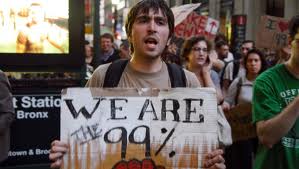
The fact that the model for the Occupy encampments was, at its core, the same model being practiced in the Arab uprisings, may have been the key factor. Or maybe it was that this strategy was the one being employed – the strategy of taking and holding a piece of ground, and not giving it up until you’ve gotten what you came for. Or until you’ve been violently expelled by the police enough times that you eventually stop coming back.
Faced with tremendous police brutality, the onset of winter, and other very big challenges, the Occupy movement, as it came to be known, was a vibrant social movement for at least a couple of months. During this short period of time, it did what vibrant social movements do. It changed the parameters of conversations in much of the media and in much of society when it comes to wealth and poverty in the United States and even other countries as well. It created a lot of art, and it changed a lot of people’s lives who participated in it – which may have appeared to be a small number of people on the face of it, since most of the encampments at any given time were relatively small. But these encampments were ubiquitous – the meme had successfully implanted itself in the minds of people in many far-off corners of many societies.
Questions/thoughts for further exploration…
Chelsea Manning (2010)
Chelsea Manning was ultimately pardoned by Obama, but his administration jailed more whistle-blowers than any administration in history. Why?
Corporations Are People, Too (2010)
The Citizens United Supreme Court ruling took the cap off of corporate donations to political campaigns. Is money speech?
Good-Bye, Portland (2010)
Between 2000 and 2010 Portland lost about half of it’s Black population. Is gentrification inherently racist in the US context? Is it disruptive to community? How can it be stopped?
Mavi Marmara (2010)
The Israeli military attacked a humanitarian aid ship in international waters and killed nine people on it. What were the consequences for Israel?
Deepwater Horizon (2010)
After the worst environmental disaster in US history, what kind of reassessment was there of deep sea oil drilling? How long did it take before the government began giving out more permits for the same kinds of risky operations?
Tunisia (2011)
A street peddler immolated himself in protest, and almost the entire Arab world erupted. Why was most of the Arab world such a powder keg in 2011?
Wisconsin (2011)
Is Wisconsin better off since Governor Walker’s anti-union campaign in 2011?
Minami Sanriku (2011)
Many towns were destroyed, many thousands killed in the 2011 tsunami. There was also a series of nuclear meltdowns.
Eola Park (2011)
Feed hungry people in a church basement and that’s fine, but do it in a public park and you’ll be arrested. Why?
London Is Burning (2011)
Why were there riots in major cities throughout England, but not in Wales, Scotland or Northern Ireland?
Breivik (2011)
Mass murderer Anders Breivik was inspired by the medieval organization, the Knights Templar. What did the Knights Templar do?
Occupy Wall Street (2011)
What were the lasting impacts of Occupy Wall Street? (In terms of government policies, how we communicate, etc.) How pervasive was the movement?

